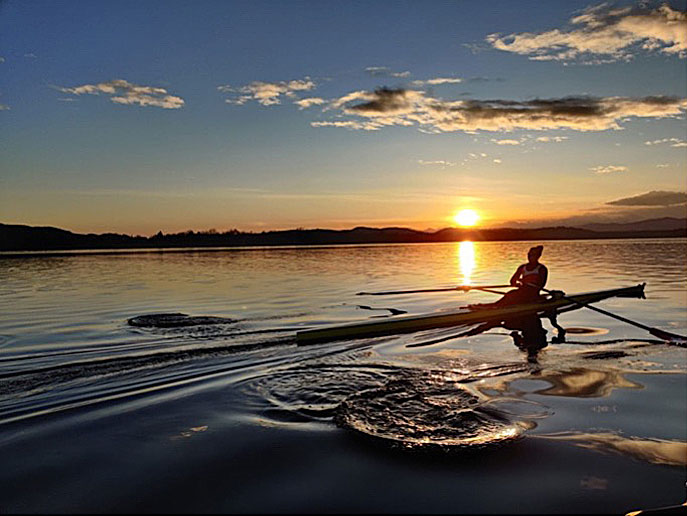
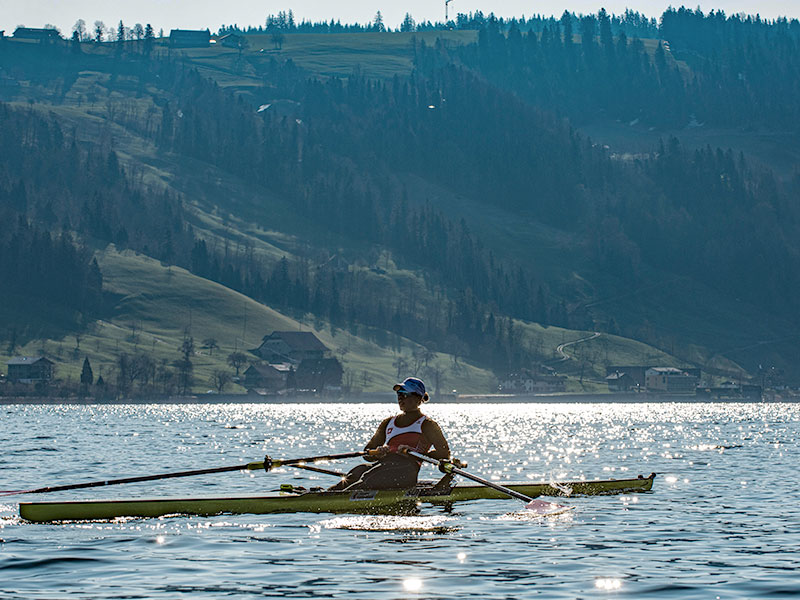
I was born during a summer thunderstorm in 1990. On that very Wednesday, accompanied by thunder and lightning, I was born with what has shaped me to this day: The ability to accept challenges, to discover opportunities in the unexpected, to weather storms and emerge stronger from them.
Growing up in the Zurich Oberland with my three siblings, the proximity to nature and Lake Greifensee was a formative part of my life. No matter whether it was summer or winter, sunny or stormy. Frolicking around, fishing, walking, picnicking... I learned early on how fulfilling simple things can be.


In my childhood, I played the violin, tried climbing and horse riding - until I found my way to rowing. I never suspected that this narrow, wobbly boat would one day become my springboard to so much more than beautiful trips on the lake. It wasn't love at first sight, but a process. However, being close to the water gave me patience and perseverance, which ultimately led to the joy of challenging myself and constantly improving.
The first successes came not because of exceptional talent, but because of my perseverance. I never had perfect conditions, but I had the determination to create them myself. At the Uster rowing club, I found the same reality that shaped my family life: we didn't have much and nothing was taken for granted, but we wanted for nothing.
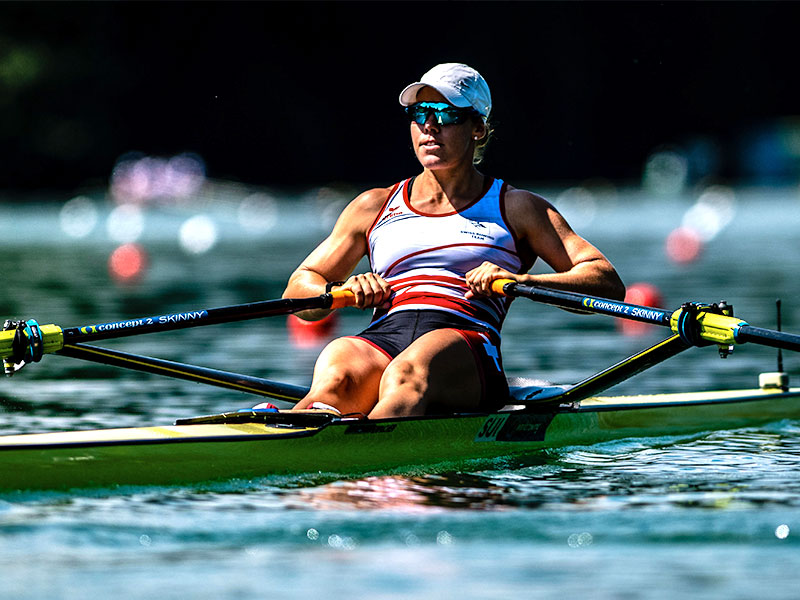
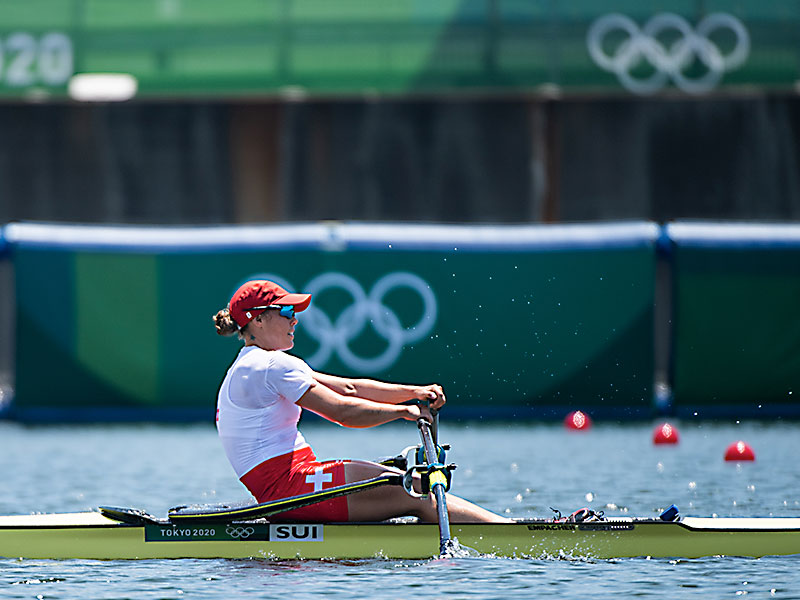
My path into professional sport was anything but straightforward - it was a constant negotiation between possibilities and limits. One thing was clear: I needed a professional solution that was compatible with my large training workload. I found this in a commercial apprenticeship at the Zollikerberg crèche, which helped me to cope with the dual workload.
How do you take this leap of faith and go all-in on professional sport? And not only that: in a marginal sport with no financial security, no international successes to back you up and no role models who have shown that it is possible? This is how I solved it: I looked for creative ways, exchanged ideas with people, asked for support from those whose expertise I could rely on. And above all: I relied on myself. Fully and completely. Without exception. Without compromise. Consistently. I was the first female rower ever to apply for the top rowing recruit school. But my path there was not a sure-fire success. I wasn't believed to have the potential to be successful on the international stage. I had to fight - not only on the water, but also to be considered at all. I impressed with my performance, stamina and my unwavering determination to pursue this sport professionally.
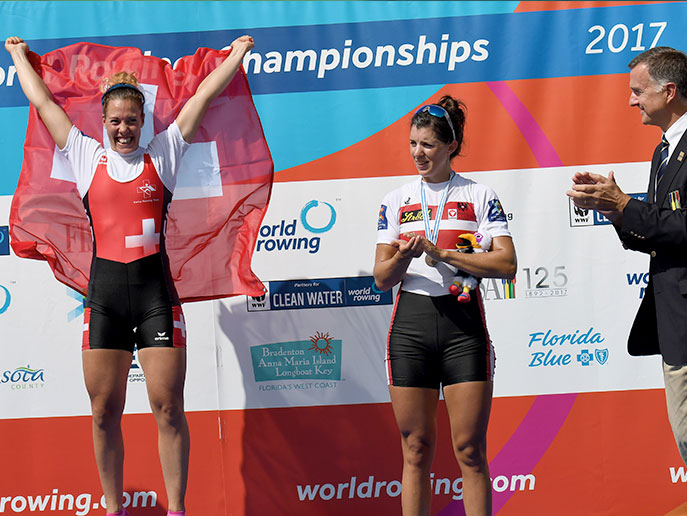
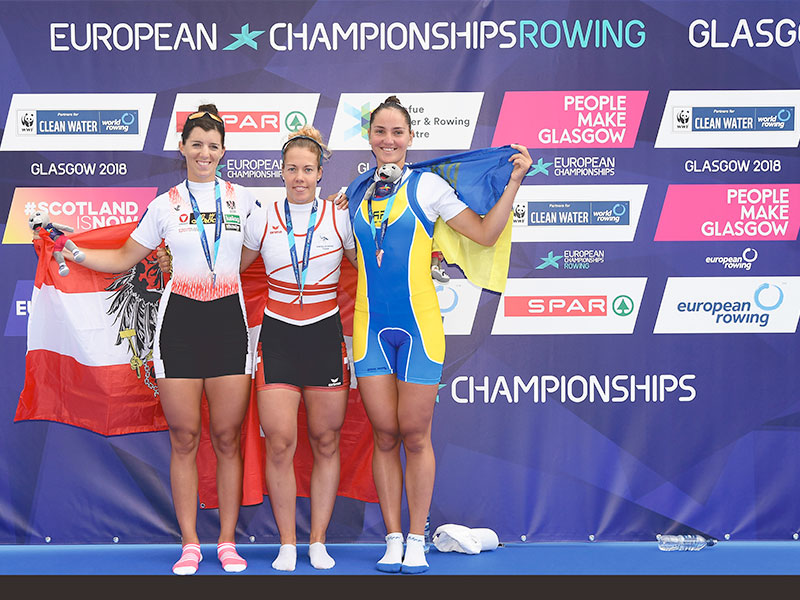
I was European vice-champion, European champion, world vice-champion, world champion, won the overall World Cup and came 5th in two Olympic Games. I missed out on an Olympic medal by 1.2 seconds - that's about 15 cm. But my story is not a series of successes. It's a testament to the values that got me there - and that carried me through when things got tough.
There were moments when I had to stand up for myself without any outside support. For example, when I was overtraining - the worst thing for an athlete. The body burns out, but the mind wants to keep going. I had to learn to recognize the line between discipline and self-destruction. The hardest lesson? That regeneration is not a weakness, but a sign of genuine personal responsibility.
It wasn't the medals that shaped me, but the moments when I could have given up - and didn't. The decisions that were uncomfortable but felt right. For example, when I decided to act independently of the rowing association because I could no longer reconcile my values with its actions and culture. A decision with consequences - but also with clarity.
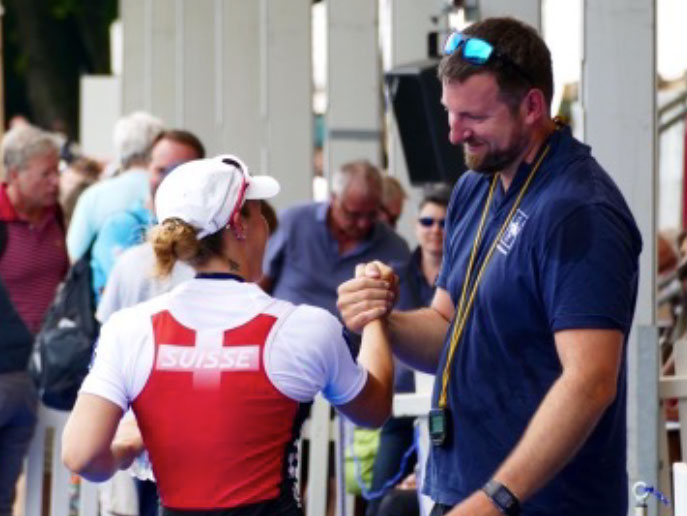
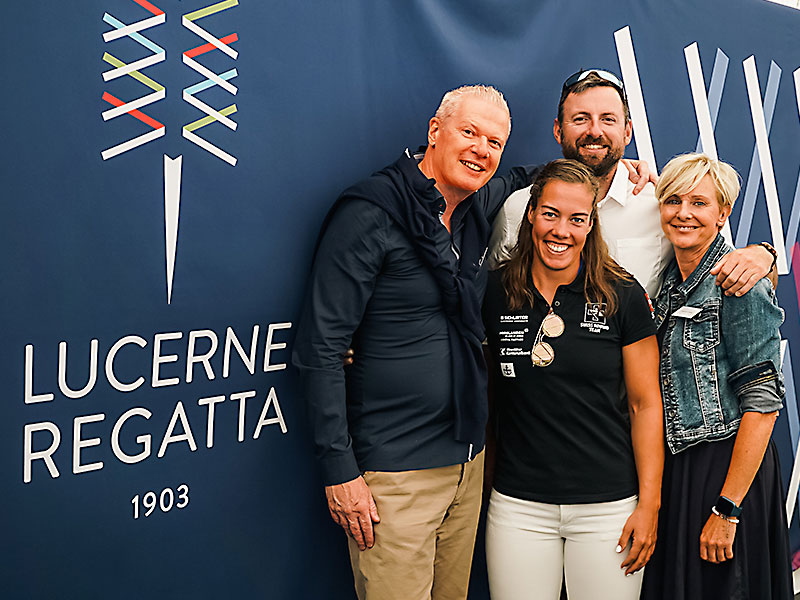
On December 16, 2022, the sudden loss of my life partner and coach Robin turned my world upside down and completely tore the ground from under my feet. My everyday life as a professional athlete - a well-oiled, efficiently running machine - came to a complete standstill. It was as if someone had pulled the plug.
I tried to put the plug back in, but I had to admit to myself that my machine wouldn't just start up again. Retiring from elite sport was the hardest step of my life, but it gave me the opportunity to start again.
For someone like me, who can hardly stand standing still, the question soon arose: "What now?" As a pragmatic doer, I decided to train as an Integral Coach. The theoretical tools complemented my practical experience and gave me the opportunity to steer my greatest successes and most difficult moments in a new direction.
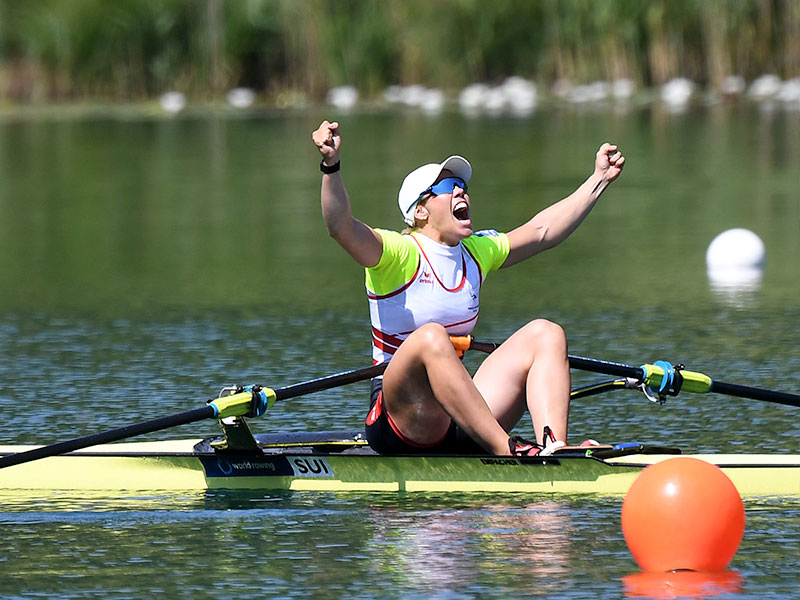
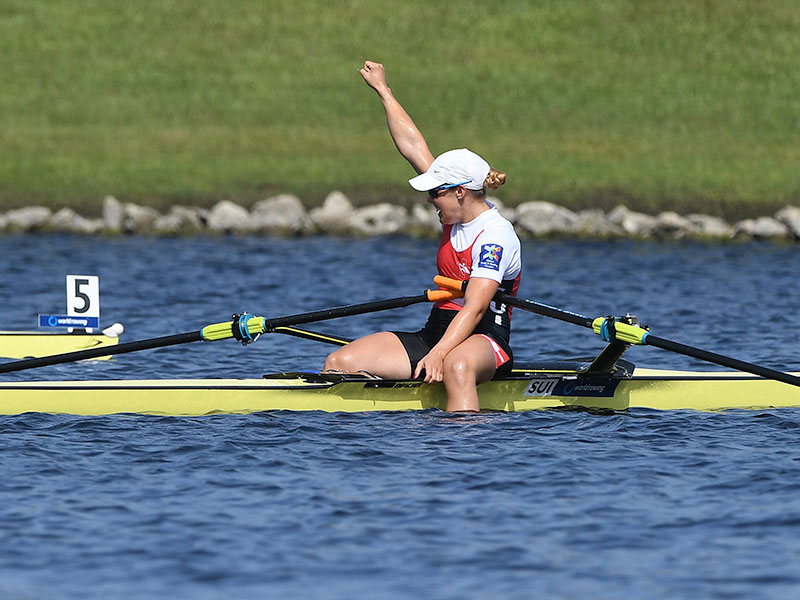
Actively dealing with my grieving process allowed me to experience life in its fullest depth. It made me realize what I had already learned in the One:
During this time, I came closer to myself than even my sporting successes ever could.
This also reawakened my passion for sport. Ten months after my retirement, I decided to make a comeback. Time was short and the grief was omnipresent. I didn't qualify for the Olympic Games in Paris. But my biggest gain was on the other side of the finish line: I found clarity. Clarity about how I can transform my passion and my experiences into something meaningful.
This understanding forms the basis of Passion Meets Purpose. This is where I bring everything together: my enthusiasm for sport, the lessons I have learned from great successes and painful moments, my intense experiences with life and my inner strength. With this foundation, I support others in mastering their challenges and finding their own path.










I have been a member of the Swiss Olympic Athletes' Commission since May 2019 and its Co-President since 2022. In November 2021, I was also elected as one of two female athlete representatives on the Executive Board of Swiss Olympic.
In both roles, I pursue one goal: to strengthen the empowerment of female athletes and consistently include their interests, needs and perspectives in all decision-making processes. This should bring athletes even more clearly into the focus of everyone involved as self-determined players in Swiss sport.
In both committees, I contribute my experience from almost twenty years of rowing, including ten years at professional level, to further develop Swiss sport. The voice of the athletes is the central asset of Swiss Olympic and all sports federations.